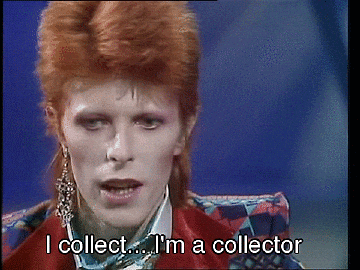Why we collect things
Plus, the power of reframing
BRAIN WAVES
Gotta catch ’em all. Ever wonder why some people collect things? From rare stamps to limited-edition sneakers and vintage Garfield mugs, the urge to collect isn’t just about owning cool stuff. It may also be driven by a deep desire for control. “This is because consumers who desire control seek structure, which is created when interconnected components form a holistic entity,” researchers wrote in a recent paper. Put simply, it’s satisfying to see random objects come together in a larger, interconnected whole. The researchers tested this idea across six experiments and found evidence to support their claim. But they also found that if the “structure” feels out of reach (i.e., the collection seems impossible to complete), then the motivation to collect fades. In other words, if your Pokémon collection feels incomplete without a first edition holographic Charizard, don’t be surprised if you lose steam.
Another way to look at it. Students from low-income or first-gen backgrounds are often seen as having fewer opportunities to succeed in college, which can make them feel like their background is a disadvantage. But researchers tested whether flipping this perspective — seeing their experiences as a source of resilience, problem-solving skills, and work ethic — could actually help. In one study, reframing their background as a strength boosted students’ academic task performance by thirteen percent. And in a larger study, it led to better grades over the semester. “Recognizing the strengths [these] students bring to university can help students access these strengths and apply them to schooling,” the study said.
The real me. We’re drawn to people who appear to be true to themselves, but what does it really mean to “be authentic”? Listen to learn more.
ON THE HIDDEN BRAIN PODCAST
Wellness 2.0: Who Do You Want To Be? We all have to make certain choices in life, such as where to live and how to earn a living. Parents and peers influence our major life choices, but they can also steer us in directions that leave us deeply unsatisfied. Psychologist Ken Sheldon studies the science of figuring out what you want. He says there are things we can do to make sure our choices align with our deepest values.
For more on decision-making, check out our episode on how to make wiser choices.
ON THE MY UNSUNG HERO PODCAST
Virginia Squier’s Story: After Virginia's young daughter accidentally boarded a subway train without her, someone unexpected stepped in to help.
Don’t forget to send us the story of your unsung hero! Record a voice memo on your phone and email it to myunsunghero@hiddenbrain.org.
NEW BEGINNINGS
Start your new year on a strong foot! Check out the New Beginnings collection on Apple Podcasts for lots of ideas from us and other shows about how to live well, achieve your goals and broaden your horizons in 2025. http://apple.co/newbeginnings2025
MIND GAMES
What starts with T, ends with T, and has T in it?
LAST WEEK’S PUZZLE
What do the numbers 11, 69 and 88 all have in common?
The answer: They all read the same way when turned upside down.
A MOMENT OF JOY
The outpouring of generosity in the wake of California’s wildfires. If you’re looking for ways to help, here are some resources.
Have an idea for Hidden Brain? A story you want to share with us? Send an email to ideas@hiddenbrain.org. Listen to us on Spotify, Apple, Amazon Music or your favorite podcast platform.



